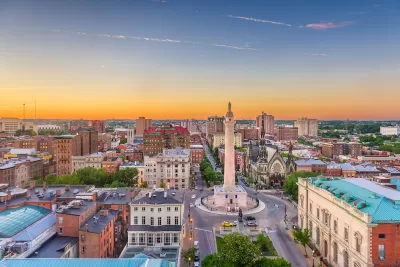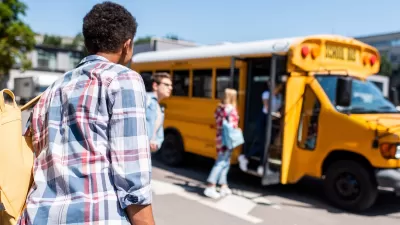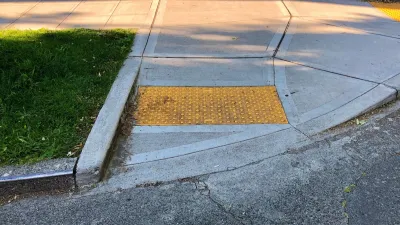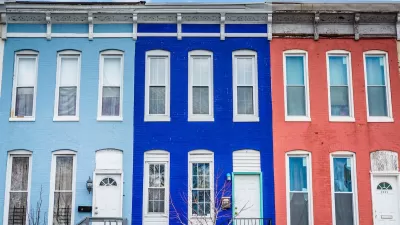When Baltimore got funding for a round of school renovations, the state directed it to design schools that would also advance neighborhood revitalization — and it learned some lessons about why that's not always so simple.

Baltimore's 21st Century School Buildings Program (21CSBP) demonstrates how school infrastructure investments can be leveraged for broader community development goals. Launched in 2013 with $1.1 billion in funding, the program has built or renovated 27 schools while intentionally connecting these investments to neighborhood revitalization efforts.
Four key lessons emerged from Baltimore's experience:
- Different institutional philosophies between education and community development agencies created implementation challenges. While the school district prioritized addressing historical inequities, housing and community development agencies favored investing in areas with greater market potential.
- High-capacity community organizations proved essential for connecting school improvements to neighborhood development. The Southeast Community Development Corporation successfully integrated community school coordination with broader neighborhood initiatives, while areas lacking strong community organizations struggled to create these connections.
- School stability requires comprehensive housing strategies that prevent displacement. The Cherry Hill neighborhood case study showed how public housing policy and demographic trends affect school enrollment and facility utilization.
- Building community trust requires acknowledging historical disinvestment while delivering visible neighborhood improvements. Baltimore's INSPIRE program helped rebuild trust through quick implementation of community-driven projects like pocket parks, sidewalks, and lighting around new schools.
The initiative demonstrates both the challenges and opportunities of using school infrastructure investments as catalysts for community development. While institutional coordination proved complex, Baltimore's experience shows how intentional alignment between school and neighborhood investments can amplify positive outcomes for both education and community development.
FULL STORY: Rebuilding Together: How One Baltimore Program Advanced Both Education and Community Development

Trump Administration Could Effectively End Housing Voucher Program
Federal officials are eyeing major cuts to the Section 8 program that helps millions of low-income households pay rent.

Planetizen Federal Action Tracker
A weekly monitor of how Trump’s orders and actions are impacting planners and planning in America.

Ken Jennings Launches Transit Web Series
The Jeopardy champ wants you to ride public transit.

Opinion: Transit Agencies Must View Service Cuts as Last Resort
Reducing service could cripple transit systems by pushing more riders to consider car ownership, making future recovery even less certain.

‘Smart Surfaces’ Policy Guide Offers Advice for Building and Maintaining Urban Tree Canopies
Healthy, robust tree canopies can reduce the impacts of extreme heat and improve air quality.

New Jersey Lawsuit Targets Rent-Setting Algorithms
The state of New Jersey is taking legal action against landlords and companies that engage in what the state’s Attorney General alleges is illegal rent fixing.
Urban Design for Planners 1: Software Tools
This six-course series explores essential urban design concepts using open source software and equips planners with the tools they need to participate fully in the urban design process.
Planning for Universal Design
Learn the tools for implementing Universal Design in planning regulations.
Heyer Gruel & Associates PA
Ada County Highway District
Institute for Housing and Urban Development Studies (IHS)
City of Grandview
Harvard GSD Executive Education
Toledo-Lucas County Plan Commissions
Salt Lake City
NYU Wagner Graduate School of Public Service





























